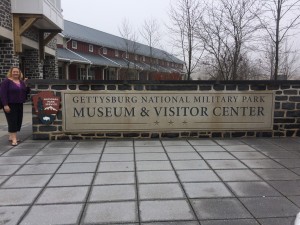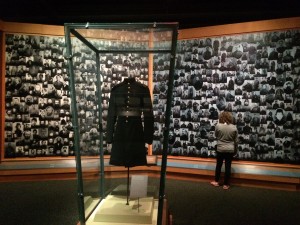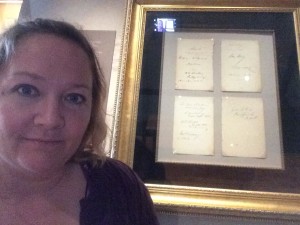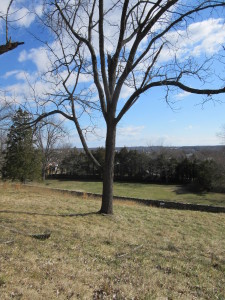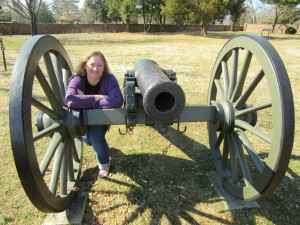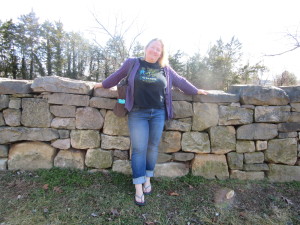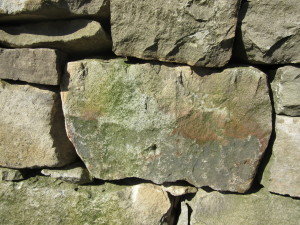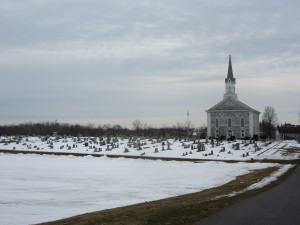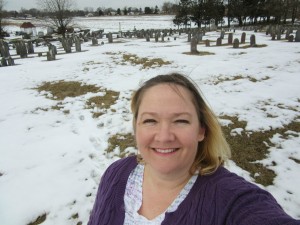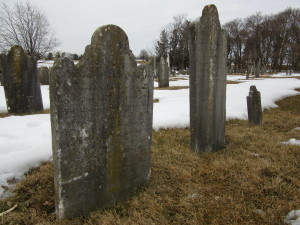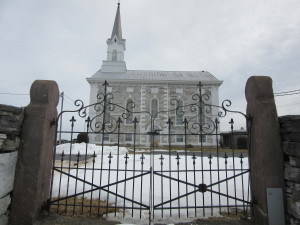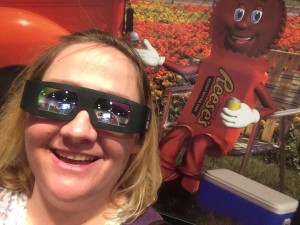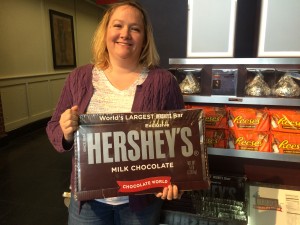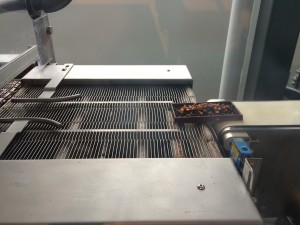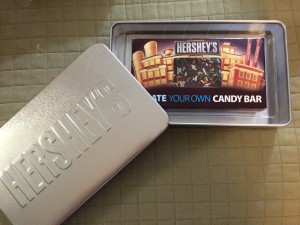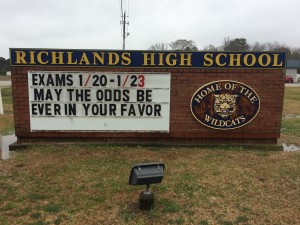Or, Visit The Haunted Resting Place Of Former Wisconsin Politicians
Visit the original post here. Or continue below for the full story.
Haunted Travel: Forest Home Cemetery Milwaukie, Wisconsin
Written by Corey Schjoth in May 2014
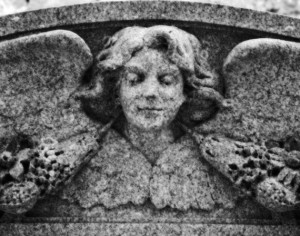
Under the unblinking gaze of Victorian Romanesque goddesses, angels and shrouded mourners pondering the death of those whose graves they watch over, visitors to the now 200 acre Forest Home Cemetery, Milwaukee, Wisconsin wind their way through the undulating landscape past reflecting gardens, ornate family crypts, imposing rain-streaked bronze statues and enormous monuments testifying to the rise of a large industrial city. The social elite are buried alongside laborers, radical politicians, beer barons, female anarchists, gangsters, and victims of epidemic and fire, equalized by their common fates in their final resting place.
Established in 1850, a church committee situated the cemetery of the original 72 acres on a known former Indian village and sacred effigy and burial mound site. The first burial, a gentleman of the name Orville Cadwell, occurred on August 5 in the same year of the cemetery’s founding. Cadwell found company shortly thereafter, as a cholera outbreak traced to a riverman from New Orleans via Chicago claimed lives in the newly-chartered city.
Post Civil War saw a boom in industry and with it, a boom in population. The dangers of industrial city life lurked here as in any other city of the time. In 1883 Newhall House Hotel went up in flames as Milwaukee firefighters battled a smaller fire elsewhere in the city. Calls went out for reinforcements from Chicago and Racine with little to no response. Documents of the time report a range of 73-90 deaths from the tragedy. All accounts agree that more than half of those who perished and brought to several area morgues were beyond identification. A mass grave for 64 victims commemorates the unknown with a memorial erected at the one-year anniversary of the fire.
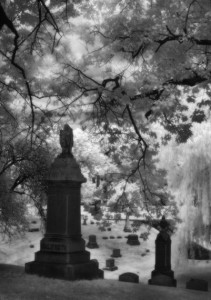
In 1886 another notable tragedy occurred, as 14,000 laborers organized in Bay View to demonstrate discontent with labor conditions. The governor of the time issued a shoot-to-kill order, resulting in a 7 person massacre, including a young 13-year-old boy. The mayor of this time, Emil Wallber, is one of the cemetery’s distinguished guests.
Beer and wheat barons built themselves ornate Flemish-style mansions, theaters, office buildings, hotels, and high-society ballrooms in the late 1800’s into the early 1900’s throughout the downtown Milwaukee area. Political figures emerged from the populace and made themselves known nationally as leaders of the socialist movement. The evocative monuments and family crypts these individuals and families chose for themselves in death reflect their indelible mark on the city’s cultural and political landscape in life. Oppressive, deliberate, imposing, they are testimony of self-importance and a symbol of the competition among the elite.
Construction of the Gothic style Landmark Chapel, using Lake Superior Sandstone, a dark red sandstone found near the Apostle Islands in Lake Superior, started in 1890 and took two years to complete. The cemetery’s area grew to 200 acres by the turn of the century to accommodate the growing demand for bigger and better plots.
Modern improvements within Forest Home Cemetery include two large mausoleums. The Halls of History is an indoor temperature controlled mausoleum and community center. Along with the columbarium and crypts it houses, the center contains a number of permanent and changing exhibits that educate visitors about the history of Milwaukee and over 100 of its people. Adjacent to this is a large terraced outdoor mausoleum called Chapel Gardens. It contains above ground burials in porticos set by ornate colonnades, statues, and rose gardens. The Chapel and cemetery are listed on the National Register of Historic Places.
The hill adjacent to the tranquil, shadowy reflecting pond on the north side of the cemetery downhill from the main offices and mausoleums, has been said to cause strange reactions in some people who walk on it, making them feel sick and fearful.
One visitor reported visions of splintered coffins and shredded corpses, followed by the onset of headaches and bloodshot eyes.
One could suppose that undocumented bitter rivalries many yet extend into the afterlife, especially among the beer barons. One such rivalry might have existed between Valentin Blatz and Johann Braun, both interred in the cemetery. Blatz opened a brewery next to Braun’s in 1850, incorporated Braun’s facilities into his own after Braun’s death in 1852, and finished the deal by marrying Braun’s widowed bride.
A modern brewing club, the Beer Barons, provides an opportunity in October to come out to the grounds to seek the paranormal. The club provides Ghost Tours for interested parties.
I have visited the cemetery a few times during the year and I’ve always enjoyed walking and exploring the vast grounds looking at the large Victorian monuments and figures. I have personally never experienced anything unusual but my visits have been limited to only a few hours. The rolling hills and canopy of oak and maple makes this cemetery one of the most beautiful I have visited.
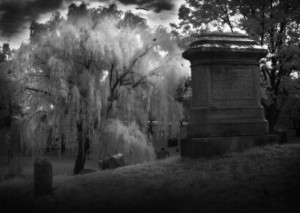
<3 Anna
Ghosts, Hauntings, & Cheap Books: Sign Up For My Monthly Newsletter Today.
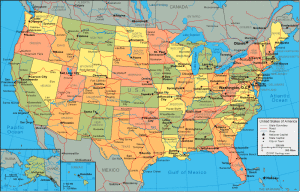
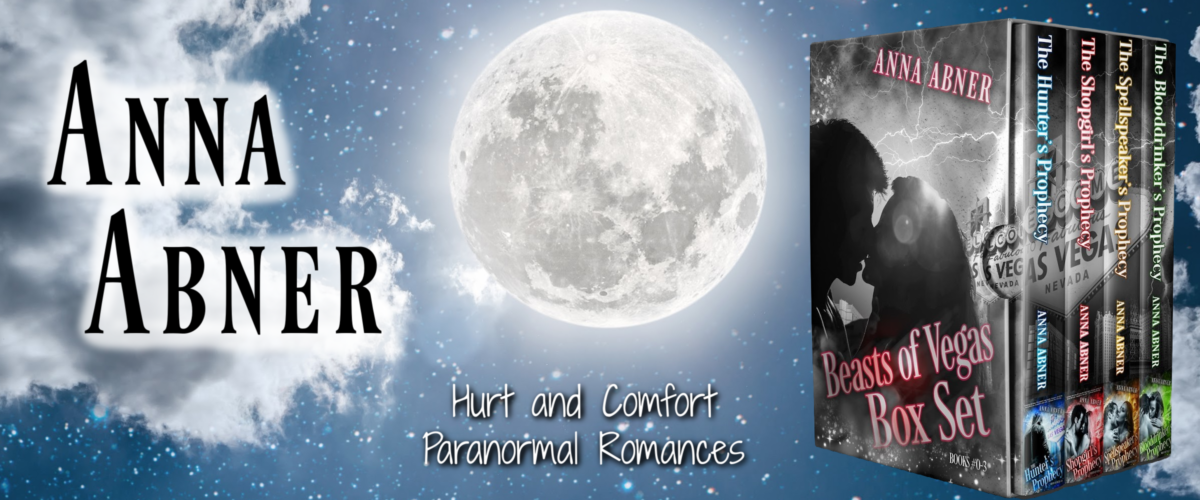


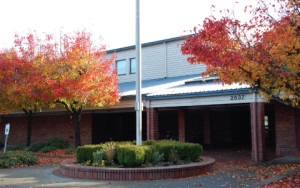 Besides, I don’t want my daughter to start middle school in North Carolina and then yank her out after ten weeks to start a new school in a new time zone. I decided the best idea for my daughter and myself was to drive to Washington as soon as her school year ended and get settled. My husband will follow a couple months later.
Besides, I don’t want my daughter to start middle school in North Carolina and then yank her out after ten weeks to start a new school in a new time zone. I decided the best idea for my daughter and myself was to drive to Washington as soon as her school year ended and get settled. My husband will follow a couple months later.